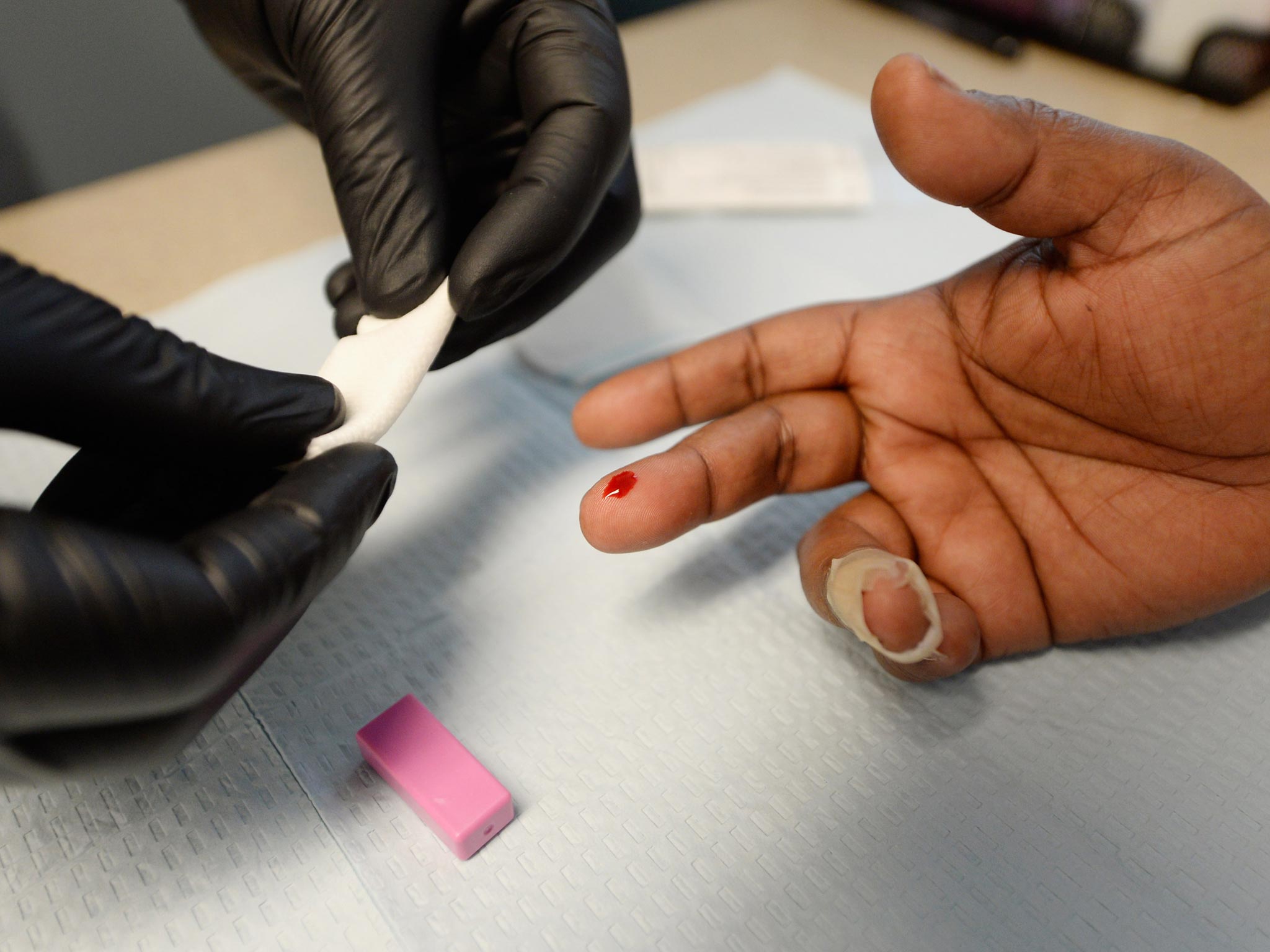Drug-resistant HIV pandemic is a 'real possibility', expert claims

Your support helps us to tell the story
From reproductive rights to climate change to Big Tech, The Independent is on the ground when the story is developing. Whether it's investigating the financials of Elon Musk's pro-Trump PAC or producing our latest documentary, 'The A Word', which shines a light on the American women fighting for reproductive rights, we know how important it is to parse out the facts from the messaging.
At such a critical moment in US history, we need reporters on the ground. Your donation allows us to keep sending journalists to speak to both sides of the story.
The Independent is trusted by Americans across the entire political spectrum. And unlike many other quality news outlets, we choose not to lock Americans out of our reporting and analysis with paywalls. We believe quality journalism should be available to everyone, paid for by those who can afford it.
Your support makes all the difference.A new HIV pandemic is “a real possibility”, one of the world’s leading authorities on infectious disease has said, warning that a rise of drug resistant strains of the virus could “reverse progress made since the 1980s” in combating the disease.
Professor Jeremy Farrar said that “the spectre of drug-resistant HIV” threatened to have “a huge impact” in the next 20 years, if drugs which have made vast improvements to the life expectancy of patients since 1990s become less effective.
His warning came as a coalition of scientists said that antimicrobial resistance (AMR) – the process by which bacteria and other microbes, including viruses, evolve to be immune to the drugs we use to combat them – should rank alongside climate change as one of the greatest threats facing humanity.
Professor Farrar, director of the leading research foundation the Wellcome Trust, said that it was “inevitable” that resistance to HIV would increase because it was a virus which could easily mutate.
Antiretroviral drugs currently used to treat HIV have been so successful that people living with the virus can expect to live healthy, active lives if they have access to the drugs and adhere to their regime.
While hailing the “incredible” progress made since the 1980s in treating HIV, Professor Farrar said that resistance to first resort drugs, and also some second and third resort, drugs had already occurred and that drug options for the virus were not “limitless”.
“It is not unreasonable that a HIV pandemic could return.” he said. “The possibility of a resistantly-driven HIV pandemic is quite real.”
He said it would be essential to use existing treatments “efficiently and effectively” to avoid further resistance developing.
“We [also] need to ensure we continue to develop new compounds rather than become complacent about the existing drugs we have,” he added. “A vaccine is also crucial to ensure we do not have to rely on our current prevention and treatment options. But an HIV vaccine will be incredibly difficult.”
In an article for the journal Nature published today, Professor Farrar and another leading figure, Professor Mark Woolhouse, have called for the establishment of a “powerful global organisation” similar to the Intergovernmental Panel on Climate Change (IPCC) to coordinate the worldwide response to the threat of anti-microbial resistance.
Scientists have warned for years that the rise of AMR risks undoing a century of medical progress with routine operations and cancer treatments becoming deadly because of the risk of infection.
Resistant strains of tuberculosis, malaria, MRSA and HIV have already spread around the world, they write. The focus of concerns has been antibiotic resistance, which relates to bacterial infections, but viral infections such as HIV and malaria are now also showing signs of resistance.
In Europe, there are estimated to be 25,000 deaths every year from drug-resistant infections – roughly the same as those killed in road accidents.
Dame Sally Davies, England’s chief medical officer, who has spearheaded an international effort to act against AMR, said she now had “cross-governmental support right up to the Prime Minister” and wanted to see an international treaty within two years, setting out each country’s commitments to combat drug-resistance.
“In 2016, we are going to need a day at the UN about anti-microbial resistance,” she said. “I believe we will need some form of treaty and it will need to be science-based. Whether an IPCC mechanism is absolutely the right mechanism at the moment to me doesn’t matter. What we need to do is galvanise support across the board.”
Professor Woolhouse, of Edinburgh University said that, in terms of the threats posed to human health by both AMR and climate change, he was “much more concerned about antimicrobial resistance”.
Dame Sally added: “I tell the politicians: I don’t want to see my children, their children or even myself in hospital with an untreatable infection. Would they want to be the government on watch when the health service falls over because they didn’t take action early enough to make sure we had new antibiotics and conserved the ones we already had?”
Strategies to combat AMR will likely fall into two categories: cutting back excessive use, and developing new drugs and alternative treatments.
Join our commenting forum
Join thought-provoking conversations, follow other Independent readers and see their replies
Comments